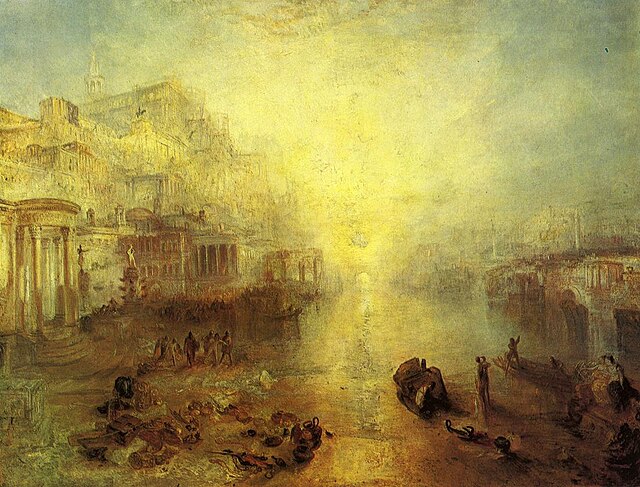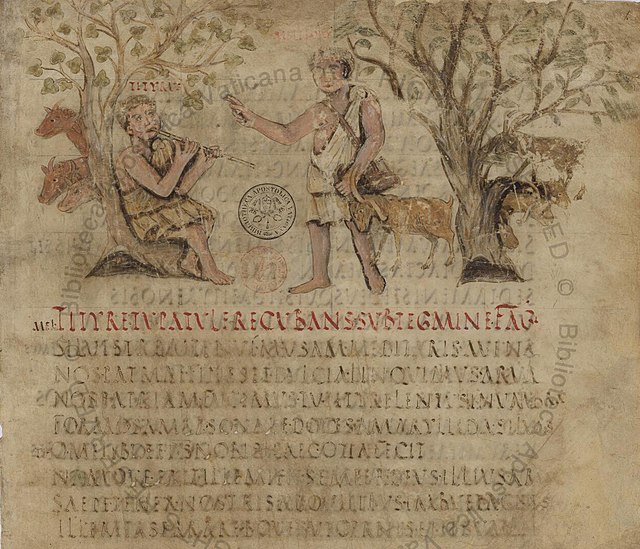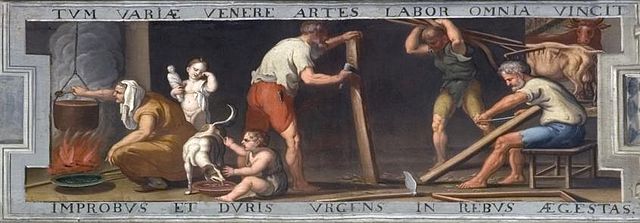Publius Ovidius Naso, known in English as Ovid, was a Roman poet who lived during the reign of Augustus. He was a younger contemporary of Virgil and Horace, with whom he is often ranked as one of the three canonical poets of Latin literature. The Imperial scholar Quintilian considered him the last of the Latin love elegists. Although Ovid enjoyed enormous popularity during his lifetime, the emperor Augustus exiled him to Tomis, the capital of the newly-organised province of Moesia, on the Black Sea, where he remained for the last nine or ten years of his life. Ovid himself attributed his banishment to a "poem and a mistake", but his reluctance to disclose specifics has resulted in much speculation among scholars.
Anonymous 18th-century engraving
Statue of Ovid by Ettore Ferrari in the Piazza XX Settembre, Sulmona, Italy
Ovid Banished from Rome (1838), by J.M.W. Turner
Medea in a fresco from Herculaneum
Publius Vergilius Maro, usually called Virgil or Vergil in English, was an ancient Roman poet of the Augustan period. He composed three of the most famous poems in Latin literature: the Eclogues, the Georgics, and the epic Aeneid. A number of minor poems, collected in the Appendix Vergiliana, were attributed to him in ancient times, but modern scholars consider his authorship of these poems to be dubious.
Modern bust of Virgil at the entrance to his crypt in Naples
Page from the beginning of the Eclogues in the 5th-century Vergilius Romanus
Horace, Virgil and Varius at the house of Maecenas, by Charles Jalabert.
Late 17th-century illustration of a passage from the Georgics, by Jerzy Siemiginowski-Eleuter.








